Reducing Stress Instantly With The Total Relief Method
How Do We Decrease the Production of Stress Hormones Without Medication?
Everyone responds differently to stressful situations, whether they are real or imagined. The one thing we all have in common is that the feeling of stress can only exist when there is an excess production of stress hormones in your brain and body. Stress can have a number of effects on your physical and mental well being, some of which are devastating. It affects the mind, body, emotions and behaviors and can have long-term health consequences if not treated.
TRUTH #1
Stress and anxiety can only be felt when your stress hormones are elevated. At its core, stress is a physiological condition and not an emotional one and it cannot be treated by simply changing your outlook on life. Positive and negative emotions are felt in relation to the balance of stress hormones (cortisol, adrenaline, norepinephrine) and the feel good hormones (serotonin and dopamine).
TRUTH #2
Increasing the levels of oxygen in your blood lowers the production of stress hormones. Our research has found that the biggest contributor of excess stress hormone production is a lack of oxygen delivery in the body – a common condition known as hypoxia which affects upwards of 93% of the population. Having an inactive diaphragm (your primary breathing muscle) is the root cause of this oxygen deficiency. Surprising as it may seem, the vast majority of us do not know how to breathe correctly. Fortunately, hypoxia can easily be treated by activating and calibrating the diaphragm to function properly.
TRUTH #3
Releasing tension in your TMJ (jaw joint) directly affects the production of stress hormones. The TMJ has some rather amazing properties in relation to stress reduction. This joint has more pressure sensing nerves than any other joint in the body. The implication is two-fold. The brain reacts to jaw joint pressure first by increasing the production of the stress hormones and second, by sending tension signals to your muscles. This type of muscle tension (also known as muscle splinting) remains until the tension in the TMJ is reduced.
Why the Total Relief Method™ Is so Effective at Reducing Stress
It increases oxygen delivery to the brain and body by learning to breathe effectively and continuously with your diaphragm. The Rubenstein Method™ activates the diaphragm in a manner that cannot be achieved simply by ‘practicing’ to breathe properly.
This results in greatly reduced or the cessation of stress hormone production.
Only after ‘activating’ the diaphragm can practicing this anti-stress breathing pattern be used continuously to manage and even wipe-out stress.
Calibrating the TMJ (jaw joint) using a series of precise biomechanical movements known as “Calibrations” that releases tension throughout the entire body. This 8 minute process creates astonishing mental clarity, the mind completely and totally relaxed.
The entire body can store and generate stress. This Method takes this fact into account and sequences the treatment such that the most critical body regions/organs/functions/issues receive treatment in a priority that matches its need(s).
Additional Benefits of the Total Relief Method™ for Stress Reduction
Decrease Stress Both Physically and Mentally
Permanent increase in oxygen delivery to the brain
Dramatic reduction of random or disorganized thoughts
Create a feeling of being able to control your life
Reduce or eliminate tension causing lower back, shoulder and neck pain
Significant increase in concentration levels
Warning Signs & Symptoms That Your Stress Level May Be Too High Include:
Physical
- Teeth Grinding, Clinching
- Insomnia or Feeling Tired Upon Waking in the Morning
- Chronic Pain
- Headaches and/or Backaches
- Muscle Tension
- Fatigue
- Frequent Illness
- Racing Heart & Heart Palpitations
- Sudden Weight Changes
- Increased Fat Around Mid-Section
Mental
- Constant Excessive Worrying
- Focus and Concentration Problems
- Inability to Get or Remain “Present”
- Memory Problems
- Mental Fogginess
- Racing Thoughts
Social & Behavioral
- Isolating Yourself from Others
- Neglecting Responsibilities
- Nervous Habits: Nail Biting, Pacing
- Overreacting to Minor Problems
- Snapping or Fighting with Others
- Poor Judgment
- Drug Abuse
Emotional
- Frequent Stress Experiences
- Feeling Overwhelmed
- Feeling Tense or on Edge
- Moodiness
- Irritability
- Short Temper
- Restlessness
- Feelings of Loneliness and Isolation
